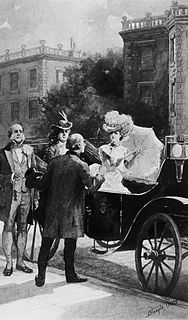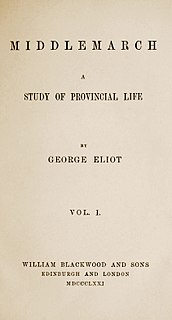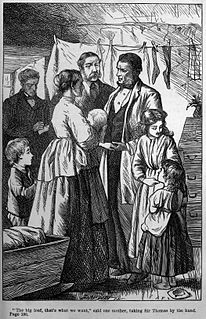 W
WThe Adventures of Harry Richmond (1870–71) is a romance by British author George Meredith, sometimes picaresque, sometimes melodramatic. It is believed to be strongly autobiographical in some sections. Meredith intended the book to be a popular success, but the roll-call of reprints shows it to have been so only during Meredith's late-Victorian and Edwardian heyday, his highly-wrought style proving an obstacle for some readers.
 W
WAt the Back of the North Wind is a children's book written by Scottish author George MacDonald. It was serialized in the children's magazine Good Words for the Young beginning in 1868 and was published in book form in 1871. It is a fantasy centered on a boy named Diamond and his adventures with the North Wind. Diamond travels together with the mysterious Lady North Wind through the nights. The book includes the fairy tale Little Daylight, which has been pulled out as an independent work, or separately, added to other collections of his fairy tales.
 W
WThe Battle of Dorking: Reminiscences of a Volunteer is an 1871 novella by George Tomkyns Chesney, starting the genre of invasion literature and an important precursor of science fiction. Written just after the Prussian victory in the Franco-Prussian War, it describes an invasion of Britain by a German-speaking country referred to in oblique terms as The Other Power or The Enemy.
 W
WDesperate Remedies is the second novel by Thomas Hardy, albeit the first to be published. It was released anonymously by Tinsley Brothers in 1871.
 W
WThe Eustace Diamonds is a novel by Anthony Trollope, first published in 1871 as a serial in the Fortnightly Review. It is the third of the "Palliser" series of novels.
 W
WMiddlemarch, A Study of Provincial Life is a novel by the English author Mary Anne Evans, who wrote as George Eliot. It first appeared in eight instalments (volumes) in 1871 and 1872. Set in a fictitious English Midland town in 1829–1832, it follows distinct, intersecting stories with many characters. Issues include the status of women, the nature of marriage, idealism, self-interest, religion, hypocrisy, political reform, and education. Despite comic elements, Middlemarch uses realism to encompass historical events: the 1832 Reform Act, early railways, and the accession of King William IV. It looks at medicine of the time and reactionary views in a settled community facing unwelcome change. Eliot began writing the two pieces that formed the novel in 1869–1870 and completed it in 1871. Initial reviews were mixed, but it is now seen widely as her best work and one of the great English novels.
 W
WRalph the Heir is a novel by Anthony Trollope, originally published in 1871. Although Trollope described it as "one of the worst novels I have written", it was well received by contemporary critics. More recently, readers have found it noteworthy for its account of a corrupt Parliamentary election, an account based closely on Trollope's own experience as a candidate.
 W
WRanald Bannerman's Boyhood is a realistic, largely autobiographical, novel by George MacDonald. It was first published in 1871. The original edition was illustrated by Arthur Hughes.
 W
WSir Harry Hotspur of Humblethwaite, by Anthony Trollope, is a novel originally published in Macmillan's Magazine between May and December, 1870, and in novel form in 1871.
 W
WSquire Arden is a novel by Margaret Oliphant published in 1871.
 W
WThe Coming Race is a novel by Edward Bulwer-Lytton, published anonymously in 1871. It has also been published as Vril, the Power of the Coming Race.